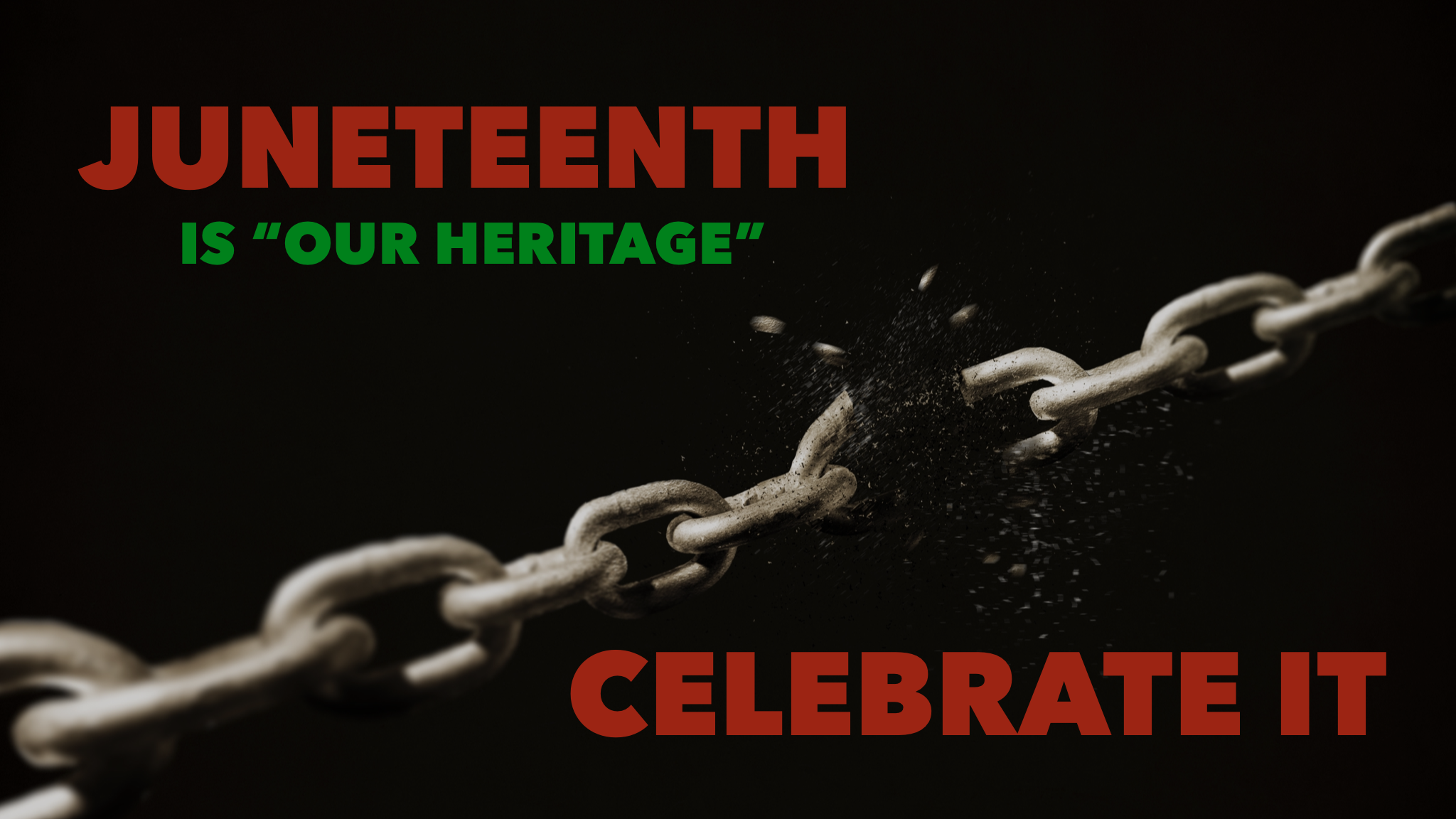Juneteenth is “our heritage.” Celebrate it.
If you are like me, until recently at least, you have never heard of Juneteenth. What is it, and why in the world would anyone act as if there were a holiday you did not know about?
Juneteenth is considered by many to be the “Fourth of July” for American blacks. June 19, 1865, is the date on which America formally announced the abolition of American slavery. It is a date used to mark and celebrate the formal end of American chattel slavery.
Before this date, most American blacks did not enjoy the rights and freedom Declared allegedly for all Americans in 1776. Frederick Douglass had voiced this sentiment in the most powerful and convicting terms in a speech in 1852. After glowing with praise and approval of the fathers who fought and the achievements of 1776–1783, he lamented, “This Fourth July is yours, not mine. You may rejoice, I must mourn.”
Then he landed this blistering critique:
What, to the American slave, is your 4th of July? I answer; a day that reveals to him, more than all other days in the year, the gross injustice and cruelty to which he is the constant victim. To him, your celebration is a sham; your boasted liberty, an unholy license; your national greatness, swelling vanity; your sounds of rejoicing are empty and heartless; your denunciation of tyrants, brass fronted impudence; your shouts of liberty and equality, hollow mockery; your prayers and hymns, your sermons and thanksgivings, with all your religious parade and solemnity, are, to Him, mere bombast, fraud, deception, impiety, and hypocrisy-a thin veil to cover up crimes which would disgrace a nation of savages. There is not a nation on the earth guilty of practices more shocking and bloody than are the people of the United States, at this very hour.
While the progress made on the ethnicity issue since then allows us to celebrate the Fourth of July with far greater national unity, Juneteenth stands like a memorial statue to commemorate a time of great national hypocrisy, and like a prophetic witness against the injustices that prevail while we boast of our liberty and justice for all.
Even if blacks did not receive the fullness of American rights and liberties overnight on that occasion, Juneteenth is a way to remember the fact that the black population did not originally enjoy that of which we boasted, and that it was the fault of the very people boasting of it the most, as well as of the masses of our ancestors who assented to that arrangement. Blacks had to ascend out of slavery and into the heritage of freedom, and that was a long hard road.
Those of us who take “our heritage” seriously must recognize that it includes the struggle of blacks in our nation. Their ascent into freedom is their heritage, and it is American heritage. It is, therefore, our heritage, too, and we ought to make quite something of it.
Despite the fact that Juneteenth is formally recognized in 45 states, few people know about it. Most people do not know about it because it is largely a “black” holiday—of the blacks, by the blacks, and for blacks—and known only to the blacks. The only black holiday most people celebrate is Black Friday.
I would recommend reading up on it a little bit at least. Consider joining the push to make it a national holiday. Consider reading Douglass’ whole oration, and from that, employ the Christian doctrine of empathy, bearing one another’s burdens (Gal. 6:2), and try understanding reality and ethics from the perspective of someone else whose experience is not so much like yours.
You may just come to see that the “perfect law of liberty” (James 1:25) is calling you to reach out, to repent, to grow, or to do something more than you are doing now. From the slavery of fear and suspicion, jealousy and apathy, we can all stand to be Emancipated.
This article was published June 19, 2018.
Also see the The Problem of Slavery in Christian America.
